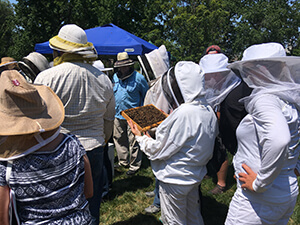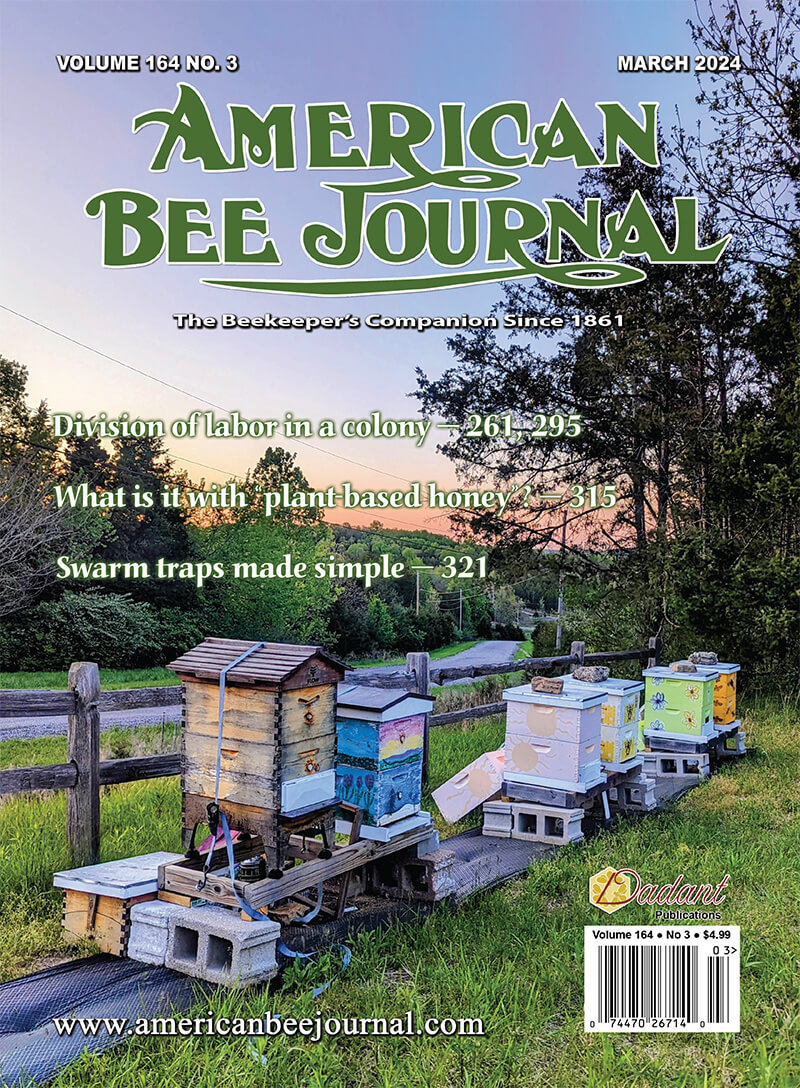
I think about the advice we give people who want to start keeping honey bees. The most common suggestion that’s affordable with a low threshold of entry is the recommendation to take a class on beginning beekeeping. But I wonder if we give the impression that a class is a single event, a box to check off, or perhaps a mere stepping stone toward something more concrete.
Even so, particularly from my own experience, I’ve come to the conclusion that one class is simply not sufficient to prepare a person to get started in beekeeping. On second thought, one class may be perfectly fine to get someone started, but beyond that, an initial class is woefully inadequate to wrestle the variables that possess the potential to derail a well-intentioned entry into beekeeping.
So, what’s my advice for February? Find a beginner’s class and sign up. Even if you already took a class, take it again. Even if you’ve been keeping bees for a couple of seasons and feel you’ve got a good sense of how your colonies are progressing, take another class.
I’m sure what you’ll find is the vast majority of classes, particularly at the local level, cater to brand-new beekeepers with no experience and offer the tips and tricks of setting up a backyard beehive. Don’t let this simplicity deter you or insult your intelligence. I feel confident you didn’t learn everything there was to learn in your first class, just as I’m equally convinced the instructor didn’t teach everything that needed to be taught. Most aspiring beekeepers come to a class with a thirst for knowledge and we provide so much information it’s like drinking from a fire hose.
What teaching taught me
Admittedly, there was a time when I thought teaching a single class on beginning beekeeping was enough to provide the basics to get someone started. Then I had a unique experience that opened my eyes and blew my mind to the benefits of taking a second or third beginning beekeeping class.
A few years ago, I taught a class at the Cape Girardeau Career and Technology Center. Attendance was small, about a dozen folks, so we had a lot of great interaction, time for in-depth discussions and plenty of opportunities for questions. At the end of the last class, the administrator from the school asked me to hand out a standard evaluation form. It was pretty general and rather vague, but the administration needed it for planning future classes.
When I collected those forms, I told the students, “That form was mandated by the administration, but let me ask you for your thoughts on what we’ve been talking about the last few weeks. Have I covered the material you felt you needed to get started? Is there something you hoped I would have covered, but didn’t?”
There was that moment of awkward silence, probably more awkward for me than for them. Some of the students shuffled their feet like they’d really rather be somewhere else. I was about to let them go and call it a night when one of the students looked at me and said, “Mr. Gillard, this was the best beekeeping class I’ve ever taken. I think you’re an excellent teacher.”
I had to wonder just how many beekeeping classes this fellow signed up for. Then he added, “Last spring, I told my wife what I wanted to do, you know, get a hive of bees. The only way she’d agree to it was if I took a class because she knew I didn’t know anything about keeping bees, and she was right. So last spring I signed up for a course at the university. I had no clue what they were talking about, but this was what my wife thought I needed and so I took the class. When I finished the class, I bought two sets of boxes, just like everyone says, and my bees came in the mail. I was so lost. The bees never really did much through the summer. The first hive died on Labor Day weekend and the second hive was dead at Thanksgiving time. I wanted to order another set of bees this spring, but my wife said I needed to take another course. Your class was the only course I could find and I’m glad I found it. You made everything perfectly clear.”
I thanked him, though in my mind, I’m not sure I deserved such lofty praise. On the way home, I pondered his effusive comments and I figured out where he was coming from. The information in the first class was so new and unfamiliar he didn’t have a relevant slot on his apicultural bookshelf to file that knowledge. Then he spent a futile summer working with his bees. For whatever reason, the colonies died, which is not uncommon in those initial years.
Though he didn’t recognize it, he entered the second class with a foundation built on his familiarity with the bees. The terminology and vocabulary we used now had meaning. He had a point of reference when we discussed ways to encourage the bees to draw out comb. He understood the value of the drones. On the surface, his first year in the bee yard could be summed up as a total failure. However, he gleaned a basic level of comprehension that brought clarity to the second class. This clarity was missing from the first class because he didn’t have the experience. I’ve come to wonder why we don’t recommend new beekeepers take additional classes.
Beginner classes are for everyone
Beekeepers new to this fascinating hobby often share this sentiment: “I’ve been keeping bees for three years and I don’t know what I’m doing, or even what I’m supposed to be doing.” The feeling is surprisingly common. I typically respond by suggesting they sign up for a beginning beekeeping class. Their reply is often, “I already took one.”
My comeback is, “That’s good. Sign up for another one.”
The momentary silence between us conveys a sharp decline in their previously lofty estimation of my beekeeping status. Then I usually gently add, “Beekeeping is relatively simple when you understand the basic principles. Grasping those basic principles is often …


